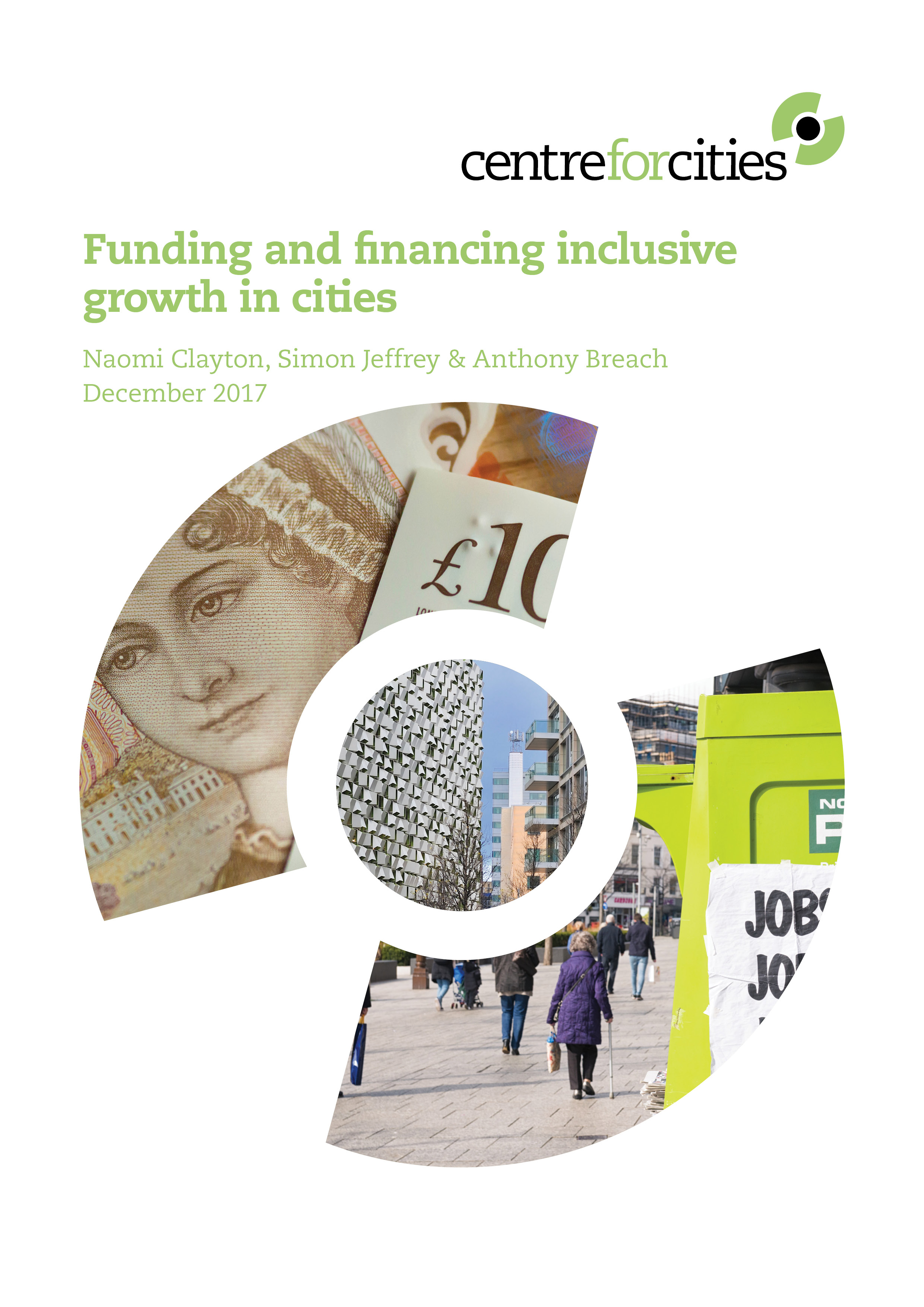01Introduction
The disconnection between economic growth, employment and poverty has driven inclusive growth up political and economic agendas. While governments have been able to point to record rates of employment and continuing economic growth both before the financial crisis and since, for many people this has not translated into their everyday experience. Stagnant wages, rising costs of living and cuts to in-work benefits – such as Child Tax Credits and Housing Benefit – have seen real incomes decline for many people and levels of in-work poverty exceed out-of-work poverty. Many people are stuck on low wages and for some groups rates of progression out of low pay have fallen.1
Cities support inclusive growth in a variety of ways. On the demand side, cities invest to create environments that support businesses to thrive. On the supply side, cities invest in skills and training provision as well as transport and housing to ensure that residents are better able to access opportunities. Changes to local government funding mean that city authorities also have greater financial incentive to support inclusive growth in order to grow their tax base and reduce demand for services. And the new metro mayors have a democratic mandate to use their powers to support inclusive growth and deliver better outcomes for the communities they serve.
Yet, with unprecedented pressure on local budgets, funding these activities is becoming more difficult. With revenue streams under pressure, it is increasingly difficult for local authorities to fund mainstream activities and many discretionary services have been cut. Spending power has reduced most in cities where deprivation and need is highest.2
In addition, at national level as more is being spent on health and social care, relatively less is being spent on policy areas – namely education and economic affairs – that play a fundamental role in supporting inclusive growth.3
There are three broad ways in which revenue gaps in cities can be plugged:
- Influencing national borrowing and spending decisions;
- Public service reform to maximise impact of existing spend and reduce demand on services;
- Unlocking and coordinating sources of funding and finance at city level.
This report focuses on how city and combined authorities can unlock and coordinate sources of funding and finance. It explores the options available to city and combined authorities, and considers what types of approach are likely to be most appropriate. There are several examples of cities, both in the UK and internationally, utilising different forms of funding and financing for inclusive growth which can be replicated within the current operating context in the UK. Others require further devolution or the introduction of new financial mechanisms to enable cities to make use of them. To this end, the report also examines the ways in which national government can help widen cities’ access to funding and finance to support better outcomes for their communities.
Box 1: Defining inclusive growth in UK cities
Inclusive growth is a broad term which can be interpreted in different ways, but at a minimum it requires that economic growth supports higher levels of employment and rising wages for people across the income distribution. For some, achieving inclusive growth means making relatively minor tweaks of the current economic system in order to connect people to growth. For others, much deeper reform of the economic model is required with inclusion viewed more highly in its own right.4
The OECD defines inclusive growth as: ‘economic growth that creates opportunity for all segments of the population and distributes the dividends of increased prosperity, both in monetary and non-monetary terms, fairly across society’.
For the purposes of this report, supporting inclusive growth in cities is taken to mean designing and delivering a mix of policies that supports businesses to create more jobs and offer higher wages, and supports people from all backgrounds to access these opportunities.
